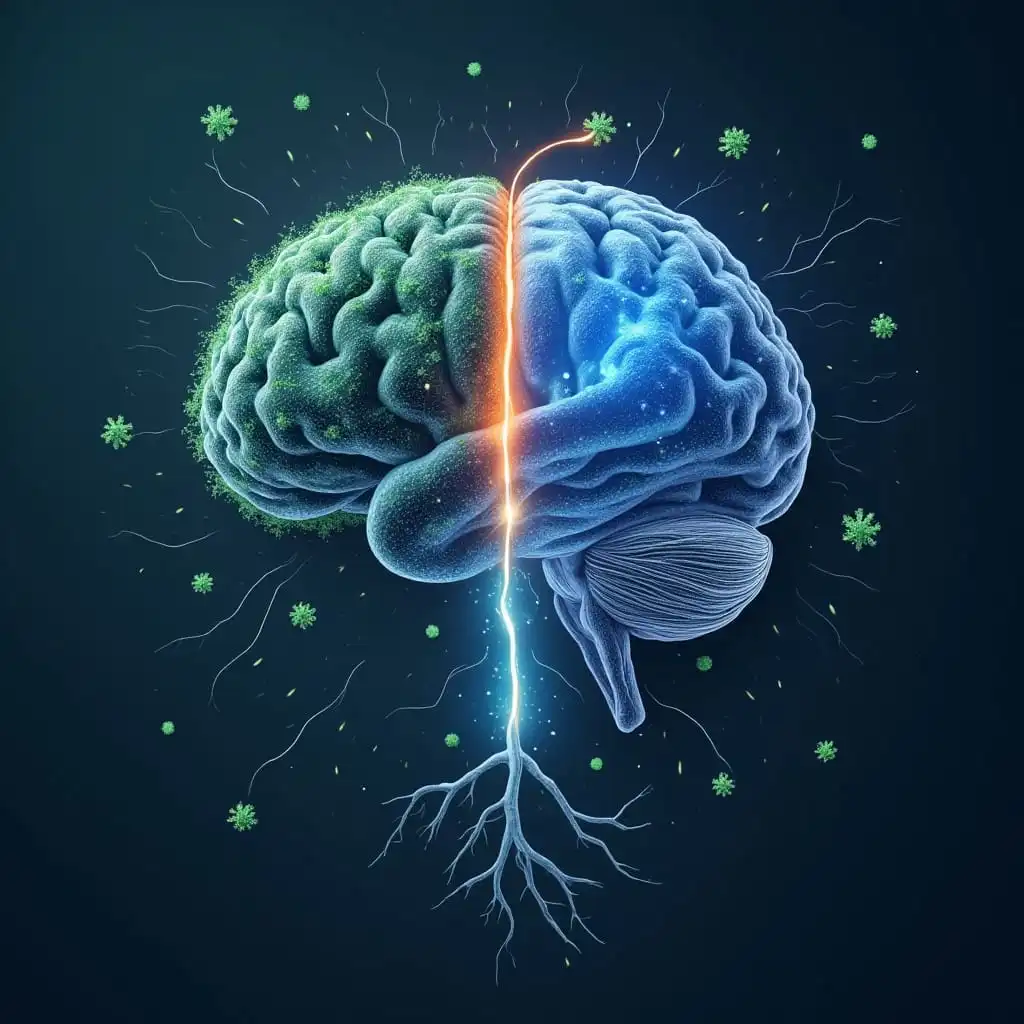The gut and brain – how the body's internal communication works


Your gut does far more than "just" digest the food you eat – it also communicates with your brain and plays an important role in your mood, energy, and overall health. Research shows that the gut bacteria have a direct link to the brain through what is called the gut-brain axis, and this means that the gut is often referred to as the body's "second brain".
How do gut bacteria affect mood?
Your gut contains trillions of microorganisms that produce neurotransmitters such as serotonin and dopamine – the same substances that your brain uses to regulate your mood. In fact, around 90% of the body's serotonin is produced in the gut. When the gut flora is out of balance, it can therefore affect how you feel, and studies have shown a link between poor gut health and an increased risk of depression and anxiety.
Energy and your gut health
Healthy guts also contribute to increased energy levels. The gut bacteria help the body break down food and extract important nutrients. If the intestine is out of balance, this can lead to poorer nutrient absorption, which in turn can make you tired and exhausted. Studies suggest that a varied and balanced gut flora can improve both your metabolism and your energy levels.
Digestion and well-being
It's no surprise that the gut plays a major role in digestion. Healthy gut flora contributes to smooth and trouble-free digestion, while unbalanced microbiota can lead to problems such as bloating, irritable bowel syndrome, and other digestive upsets. Research has also shown that a balanced gut flora can reduce inflammation in the body and strengthen the immune system.
How can you support your gut's "second brain"?
Fortunately, there are several ways you can help your gut function optimally by strengthening gut health.
- Eat fermented foods: Good sources of fermented foods are yogurt, kefir, kimchi, and sauerkraut which are rich in good bacteria that support your gut health.
- Include prebiotics in your diet: You'll find several foods that are naturally prebiotic such as onions, garlic, bananas, and asparagus. These nourish good gut bacteria and therefore contribute to better gut health.
- Reduce stress: Chronic stress can create an imbalance in your gut flora, so activities like yoga, meditation, and mindfulness can be beneficial.
- Prioritize sleep: Poor sleep quality can disrupt your gut flora and negatively affect your mood.
You can read more about 5 tips for better gut health here.
The good gut feeling is important
Your gut isn't just responsible for digestion – it plays a big role in how you feel physically and mentally. By taking care of your gut health, you can not only improve digestion but also experience increased energy, better mood, and overall better health.
Not sure what you should do to get better gut health?
Prokarimi's microbiota test gives you answers to how your gut is doing. It tells you which bacteria you have a lot of and which you have little of – and if there is an imbalance. Based on this, it will be able to give you customized advice on how to improve your health, based on your test results - so you can get that good gut feeling again!
Ansvarsbegrensning:
Selvdiagnostisering og behandling anbefales ikke. Det er viktig å konsultere helsepersonell ved eventuelle tarmrelaterte bekymringer.
Denne artikkelen er kun ment til informasjonsformål og bør ikke oppfattes som medisinsk informasjon eller instruksjoner. Hvis du har noen helseproblemer, anbefaler vi at du kontakter en lege eller annet helsepersonell.




